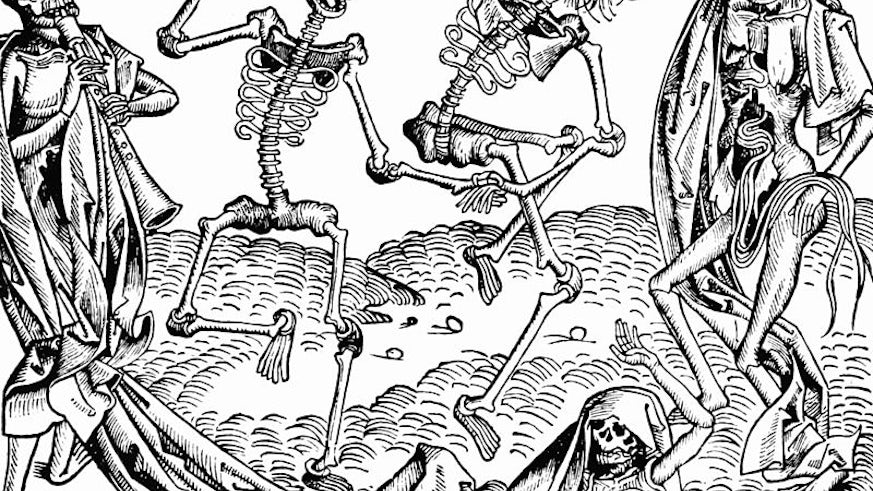Pandemics past and present: How do we endure and what can new archaeological investigation of the Black Death reveal?
24 March 2022

ENDURE set to reveal the uneven impact of the Black Death with parallels apparent for 21st century global pandemic experience
A major new archaeology project is to capitalise on a critical mass of archaeological data and innovations in archaeological science to explore how crises of the 14th and 15th centuries transformed urban ways of life.
Over five years Urban Life in a Time of Crisis: Enduring Urban Lifeways in Later Medieval England (also known as ENDURE) will apply a multi-scalar methodology to reconstructing diverse urban experience.
Focussing on the small towns of England, ENDURE will explore which elements of everyday life persisted and which were irreversibly changed.
This Cardiff Archaeology research will reconstruct these relations through a multi-scalar methodology combining big data representing hundreds of archaeological excavations within medieval small towns, historical data and cutting-edge scientific techniques.
This European Research Council funded project conceptualises towns as emergent and fluid gatherings, made up of multiple, complex relations between people, materials, animals and plants. Using radiocarbon dating of lipids extracted from pottery, it will offer an unrivalled level of chronological resolution to assess the consequences of the crisis for urban communities.
With its emphasis on endurance, this major new project aims to create a new interpretive space to understand lived experiences of medieval crisis, building on understanding of climate change, plague and political unrest in medieval studies to explain continuity in terms of hardship and human capacity to withstand, resist or sustain change.
Using isotope analysis of faunal remains and analysis of lipids extracted from pottery to generate high-definition data ENDURE will create an integrated conceptual and methodological framework capable of revealing the diversity of medieval urban experience.
Endure will interrogate three spheres to reveal different elements of everyday medieval life:
- production (agriculture, food processing)
- commerce (provisioning)
- domesticity (cooking, the urban environment)
At a time when the world is recovering from the impacts of the COVID19 pandemic, Endure project lead and Head of Archaeology and Conservation Dr Ben Jervis said:
“Resonating strongly with our current circumstances as we emerge from the uneven impacts of the COVID-19 pandemic, ENDURE will enable us to understand how impacts were felt by different groups in society six centuries ago, identifying key contextual variables.
“While the 14th century crisis - combining climate change, war, agricultural crisis and the Black Death - is a key moment in European history, narratives are dominated by studies of demography, macro-economics and settlement decline or abandonment, built on excellent and highly detailed accounts focusing on particular communities. ENDURE will capitalise on the potential of archaeological methods and data to create relatable narratives of how communities were shaped by trauma be that through endurance, persistence or transformation.”
Funded to the tune of 1,950,000+ Euro, the project Urban Life in a Time of Crisis: Enduring Urban Lifeways in Later Medieval England is part of the latest rounds of European Research Council Consolidator grants supporting researchers to consolidating their research regardless of nationality.
Author of Assemblage Thought and Archaeology, Pottery and Social Life in Medieval and England: Towards a relational approach , Reader in Archaeology Dr Ben Jervis specialises in the archaeology of medieval Britain with a particular interest in urbanism, using material culture to understand the everyday lives of the non-elite in medieval England.
